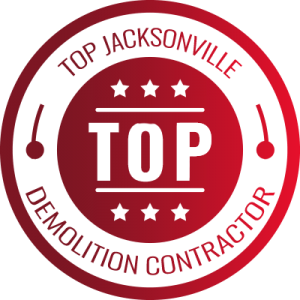



Demolition projects, whether for a residential property or a large commercial building, require careful planning and adherence to legal regulations. One of the most important steps in this process is obtaining a demolition permit. Without the proper permits, you could face fines, project delays, and legal issues, which could complicate or halt your project altogether.
In this guide, we will walk you through the step-by-step process of obtaining a demolition permit. From understanding why permits are necessary to submitting the correct paperwork and navigating inspections, you’ll learn how to ensure your demolition project is fully compliant with local regulations. Working with a professional demolition company like ELEV8 Demolition can help streamline this process, but it’s still crucial to understand how it works.
Why Do You Need a Demolition Permit?
A demolition permit is a legal document issued by your local government or municipality that grants permission to tear down a structure. These permits are necessary for several reasons:
- Safety: Demolition projects can be hazardous, and local authorities need to ensure that the work will be conducted safely and won’t endanger nearby properties, workers, or residents.
- Environmental Protection: Older buildings may contain hazardous materials such as asbestos or lead, and permits ensure that these materials will be properly handled and disposed of to protect the environment.
- Zoning Laws: Demolition permits ensure that the proposed work complies with local zoning laws, which dictate how land can be used and what structures can be built or demolished.
- Public Utility Coordination: When you demolish a building, utilities such as water, electricity, and gas need to be safely disconnected to prevent damage or accidents. A permit ensures that this coordination happens.
In short, a demolition permit is a legal safeguard designed to protect both the public and the environment while ensuring the project complies with local laws.
When Is a Demolition Permit Required?
Not every project requires a demolition permit, but in most cases, any significant structural demolition will. Permits are typically required for:
- Total Demolition: Tearing down an entire building or structure.
- Partial Demolition: Removing part of a building, such as a wing, floor, or roof, especially if it affects the structural integrity of the remaining building.
- Interior Demolition: In cases where interior walls or structural components are being demolished, especially in commercial or multi-family residential buildings.
- Garage or Shed Demolition: Even smaller structures like garages, sheds, or fences may require permits if they are being torn down.
Your local jurisdiction will have specific rules regarding when a permit is required, but in general, if the demolition affects the overall structure or requires utility disconnections, a permit is necessary. A professional demolition company like Elevate Demolition will help determine whether a permit is needed for your project and ensure it is properly obtained.
Step-by-Step Process for Obtaining a Demolition Permit
The process for obtaining a demolition permit can vary depending on your local regulations, but there are some general steps that apply almost everywhere. Here’s a breakdown of the typical process:
Step 1: Check Local Regulations
Before starting your demolition project, it’s crucial to understand the specific rules and regulations in your city or county. Visit your local government’s website or contact the building department to get information on demolition permits, required documents, and fees. Some jurisdictions may have online portals where you can submit your application, while others may require an in-person visit.
Step 2: Submit a Permit Application
Once you’ve gathered the necessary information, the next step is submitting your permit application. The application will typically ask for detailed information about the project, including:
- Property Address: The location of the building or structure to be demolished.
- Project Scope: A description of the work being done, whether it’s a full demolition, partial demolition, or interior demolition.
- Site Plans: Detailed site plans showing the structure’s location on the property, as well as any neighboring structures or features that may be impacted.
- Utility Information: Documentation confirming that utilities such as electricity, water, gas, and sewer will be properly disconnected.
- Hazardous Materials: If the building contains hazardous materials like asbestos or lead, you’ll need to include an abatement plan for the safe removal of these materials.
- Contractor Information: Most jurisdictions require that the demolition be done by a licensed contractor. You’ll need to include the contractor’s credentials and insurance information as part of the application.
Some cities may also require you to notify adjacent property owners of the upcoming demolition, especially in densely populated or urban areas.
Step 3: Schedule an Inspection
Before the permit is issued, many jurisdictions require a pre-demolition inspection. This inspection ensures that all necessary safety precautions are in place and that the building is ready for demolition. Inspectors will check for:
- Structural Integrity: To ensure the building won’t collapse unexpectedly before demolition begins.
- Utility Disconnections: Inspectors will verify that all utilities have been safely shut off or disconnected.
- Hazardous Material Removal: If there are hazardous materials present, inspectors will confirm that they have been or will be safely removed.
A professional demolition company, like Elevate Demolition, will work with inspectors to ensure everything is in compliance and ready for demolition.
Utility Disconnections
Before you can proceed with the demolition, all utilities must be properly disconnected. This includes:
- Electricity: The power supply must be turned off to prevent electrical hazards during demolition.
- Gas: Gas lines must be capped to prevent explosions or leaks.
- Water: Water lines must be shut off to avoid flooding or water damage during demolition.
- Sewer: Sewer lines may need to be capped to prevent sewage from leaking onto the site.
Utility disconnections are typically arranged by the demolition contractor in coordination with local utility companies. Once the utilities are disconnected, the contractor will obtain documentation that confirms the disconnections, which may be required for the final permit approval.
Post-Demolition Inspections and Site Cleanup
After the demolition is complete, many jurisdictions require a final inspection to ensure that the site has been properly cleared and that no hazardous materials or structural issues remain. The inspector will check that:
- Debris is Removed: All debris from the demolition has been cleared from the site, and any recyclable materials have been separated and handled properly.
- Site is Safe: The land is safe and free from hazards, making it ready for future development or landscaping.
- Compliance with Environmental Regulations: Inspectors will ensure that all hazardous materials were handled according to environmental guidelines, and no contamination remains.
Once the inspection is completed and everything is cleared, the project is officially closed. Your contractor will provide you with documentation proving the successful completion of the demolition.
Common Challenges and How to Avoid Them
The demolition permit process can sometimes present unexpected challenges. Here are some common issues that can arise and how to avoid them:
- Incomplete Applications: Missing documents or information can cause delays in the permit approval process. Be sure to provide all necessary paperwork, including site plans, utility documentation, and contractor credentials.
- Unforeseen Hazardous Materials: If your building contains asbestos, lead, or other hazardous materials, your project may be delayed until these materials are safely removed. To avoid surprises, schedule a hazardous material inspection before applying for your permit.
- Utility Delays: Disconnections can take time, especially in busy urban areas where utility companies may have long wait times for service. Plan ahead and schedule your disconnections as early as possible to avoid delays.
- Inspection Delays: Depending on your location, inspectors may have tight schedules, which can delay your project if inspections aren’t completed on time. Work with your contractor to schedule inspections as early as possible.
By working with a professional demolition company like ELEV8 Demolition, many of these challenges can be avoided. Experienced contractors know how to navigate the permit process and can handle the details to keep your project on track.
Obtaining a demolition permit is a critical step in any demolition project, ensuring that your work is compliant with local laws and safety regulations. From submitting the correct paperwork to coordinating utility disconnections and inspections, the permit process can be complex. However, with careful planning and the help of an experienced demolition company like ELEV8 Demolition, you can navigate this process smoothly and efficiently.
When you’re ready to start your demolition project, reach out to ELEV8 Demolition for expert guidance. Their team will ensure that all permits are in place, and your project will be completed safely and on schedule.

